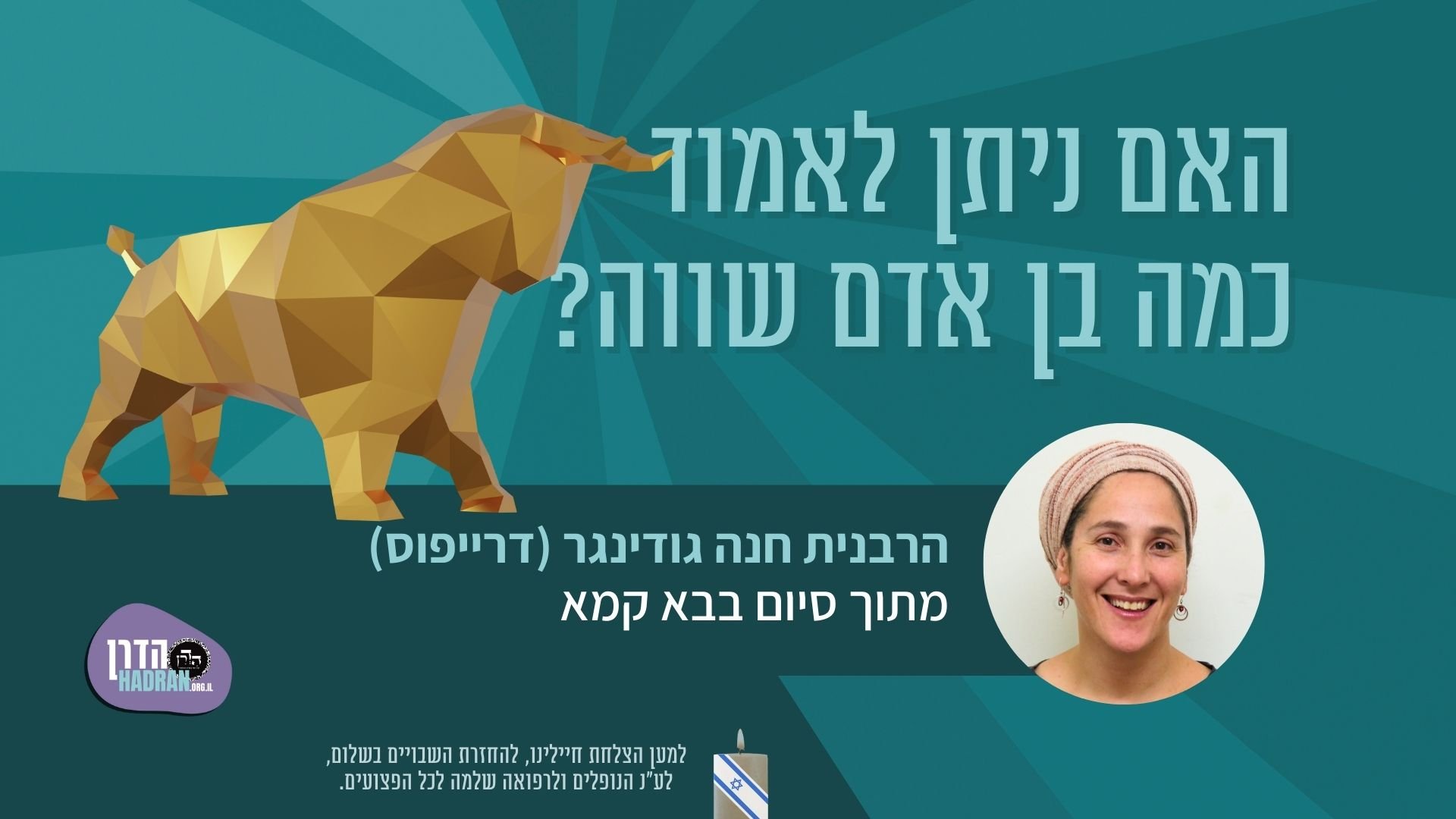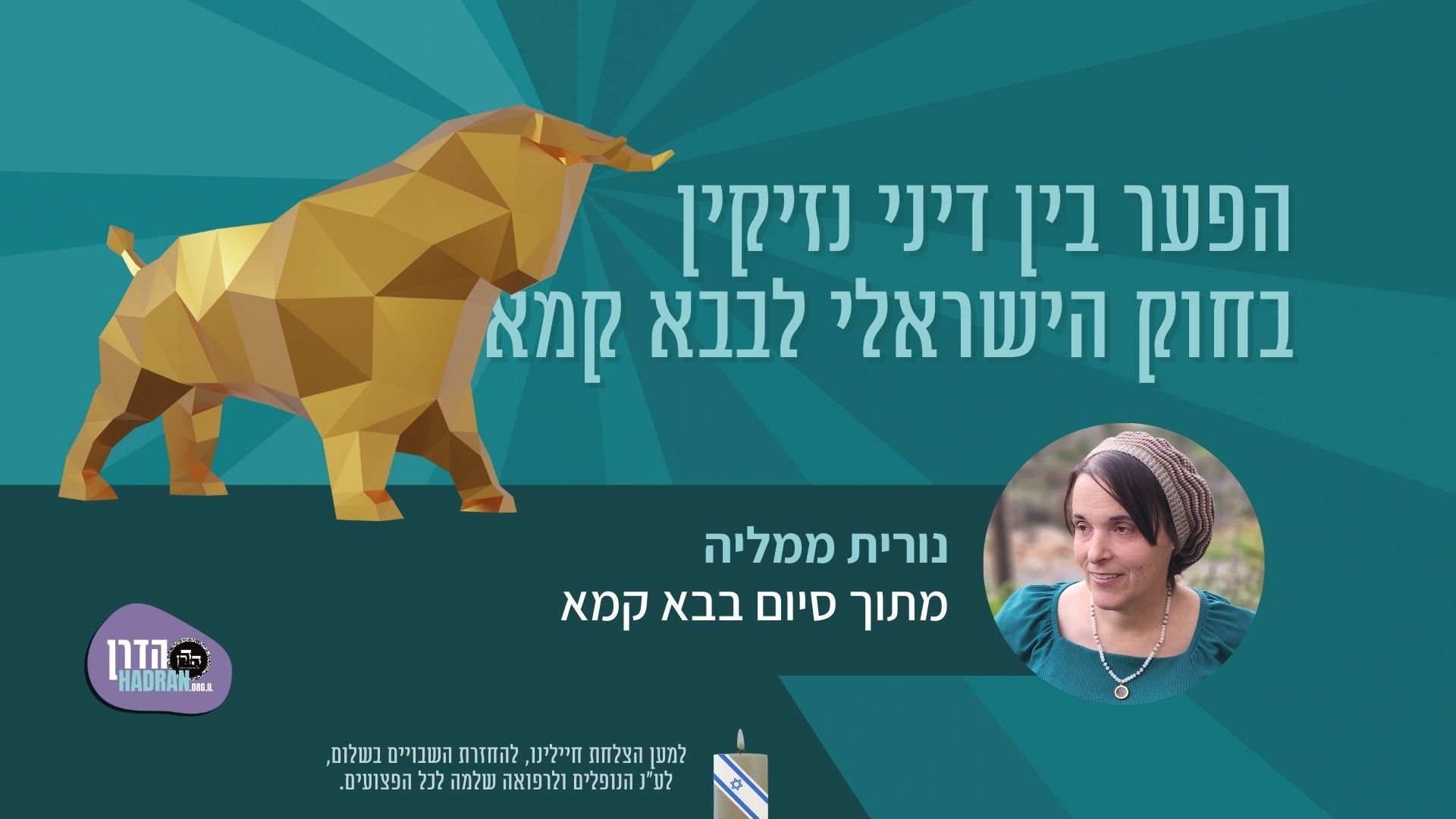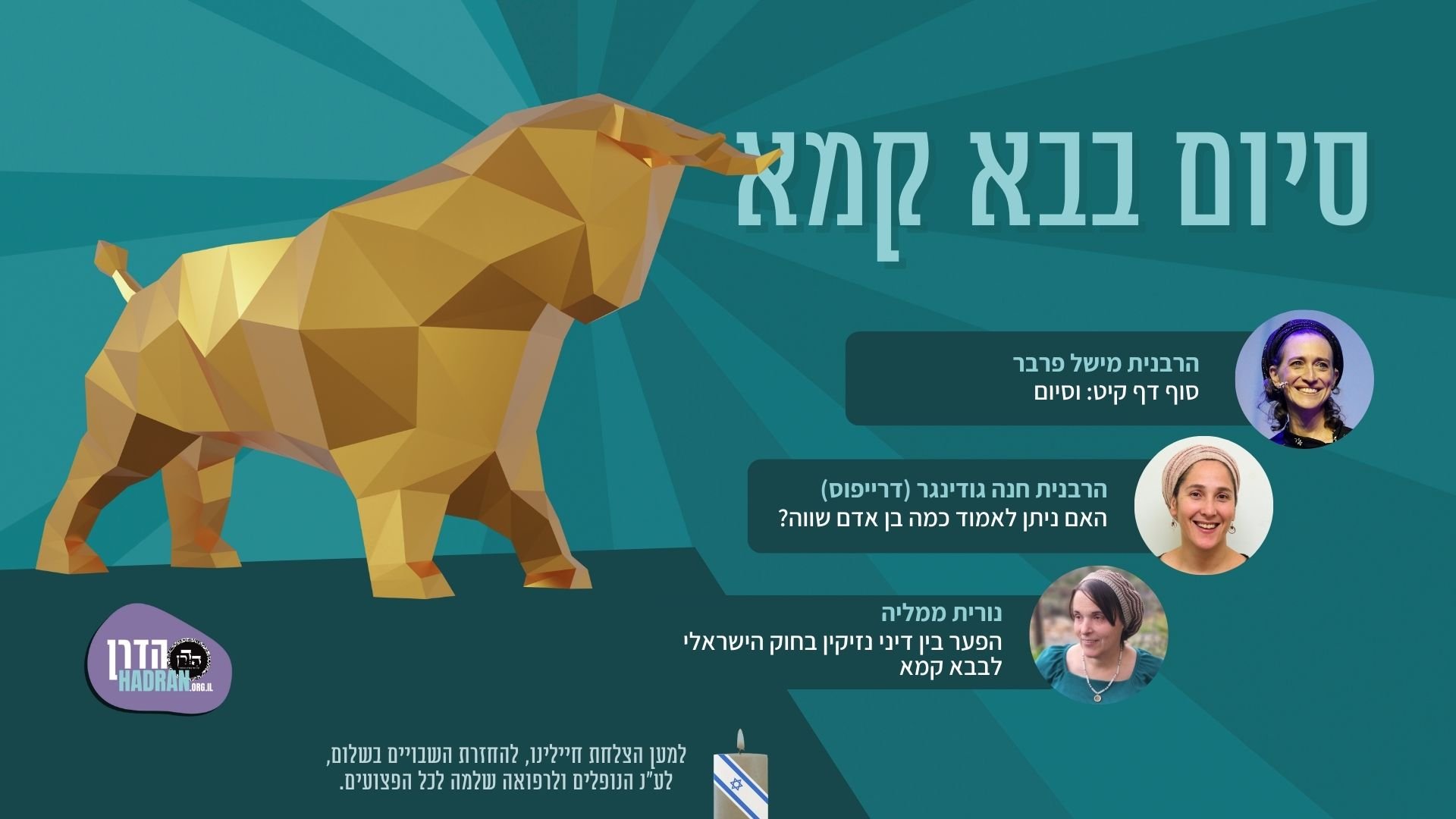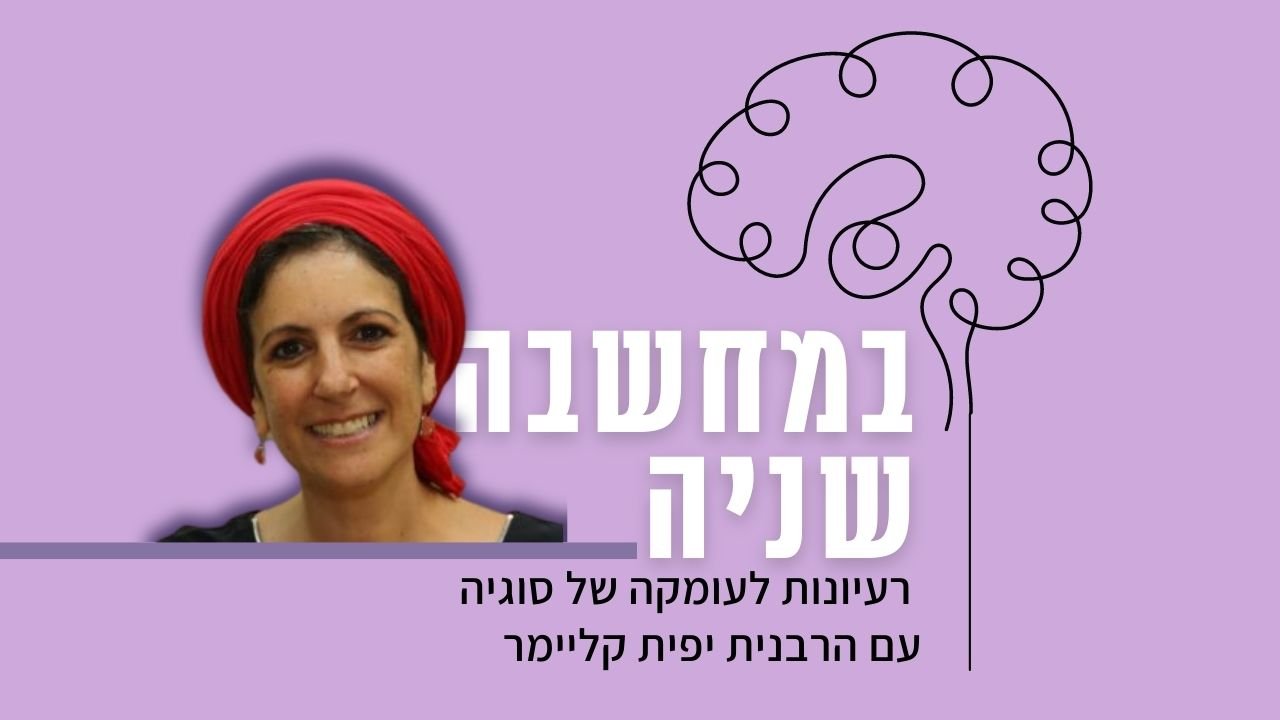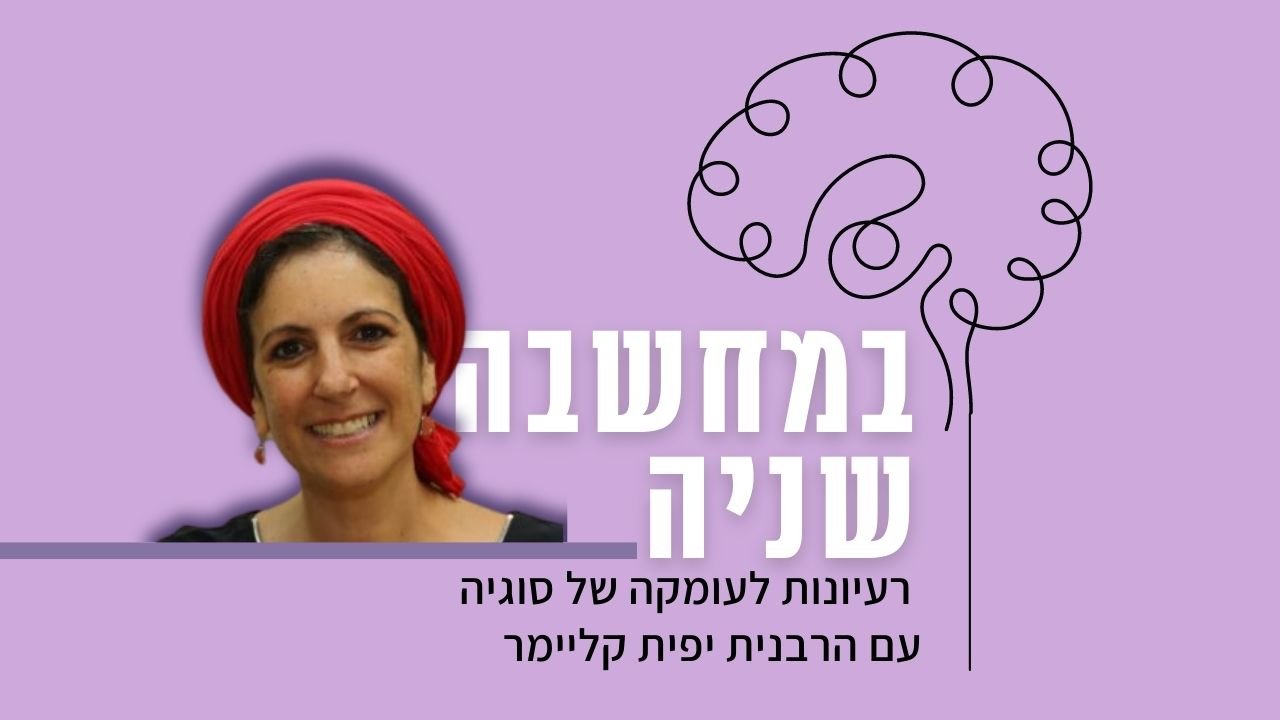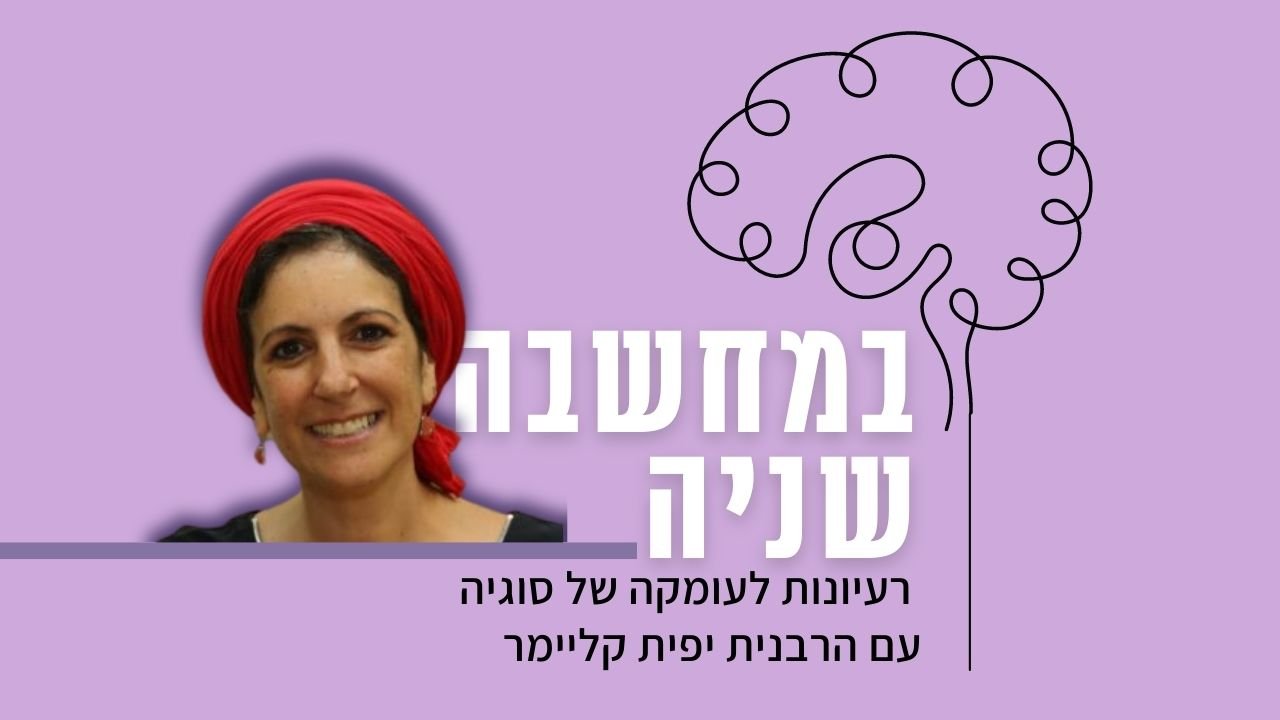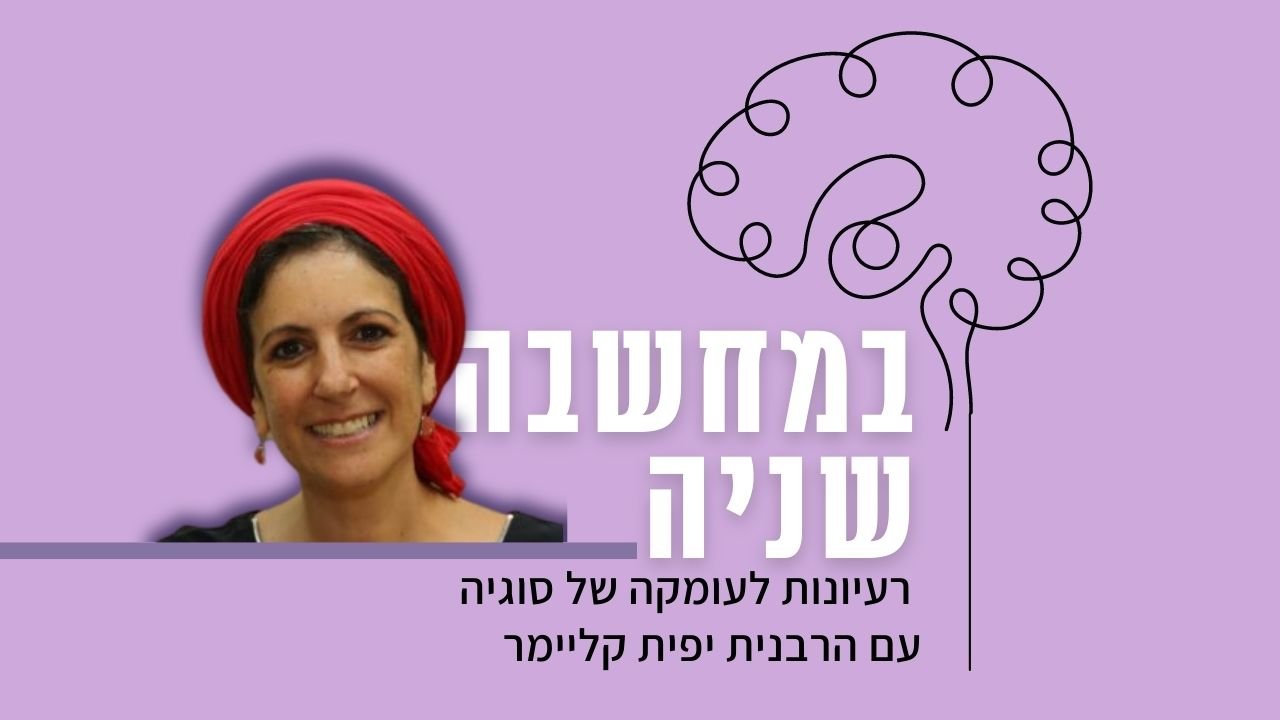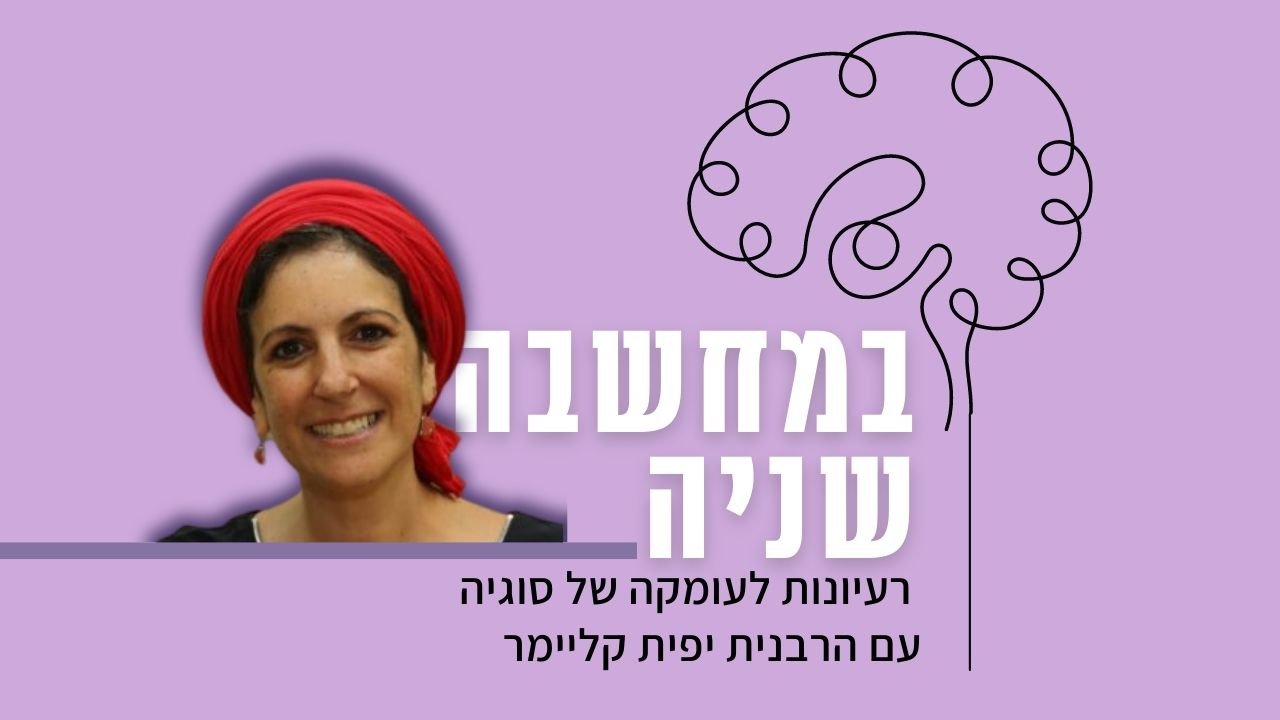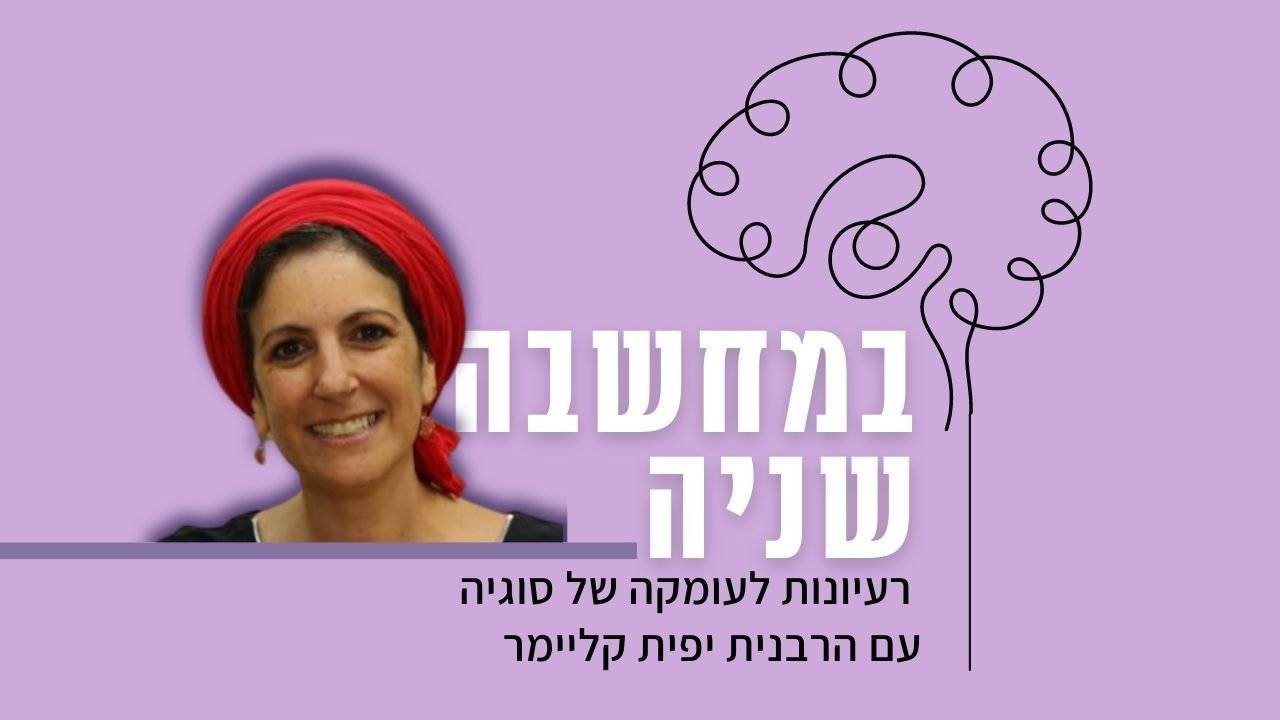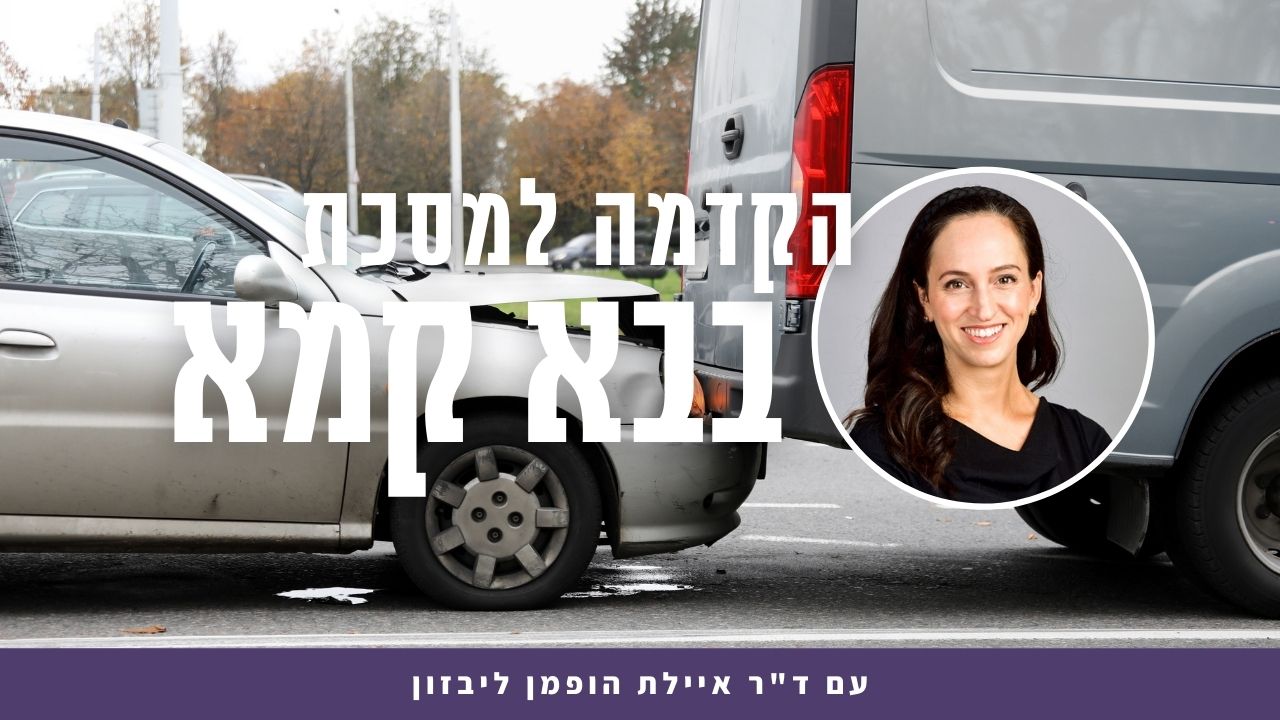בבא קמא ט
וְיָצְאוּ עָלֶיהָ עֲסִיקִין; עַד שֶׁלֹּא הֶחְזִיק בָּהּ – יָכוֹל לַחֲזוֹר בּוֹ, מִשֶּׁהֶחְזִיק בָּהּ – אֵין יָכוֹל לַחֲזוֹר בּוֹ.
and claimants [asikin] come forth about the ownership of the land, disputing Reuven’s prior ownership, as long as Shimon has not yet taken possession of the land, he can retract his agreement to the transaction and is not required to pay for the land. Once he has taken possession of the land, he cannot retract his agreement to the transaction.
מַאי טַעְמָא? דְּאָמַר לֵיהּ: חַיְיתָא דְּקִטְרֵי סְבַרְתְּ וְקַבֵּלְתְּ.
What is the reason that he cannot retract his agreement to the transaction once he has taken possession? As Reuven says to him: The purchase of the land was like purchasing a tied bag [ḥayta] whose contents are unknown and might not have any value. Since you were aware of and accepted that possibility, as you purchased it without a guarantee, you cannot retract your agreement.
מֵאֵימַת הֲוַאי חֲזָקָה? מִכִּי דָיֵישׁ אַמִּצְרֵי.
The Gemara asks: From when is it considered that he has taken possession of the property? He takes possession from the time that he walks upon the boundaries of the land to inspect it.
וְדַוְקָא שֶׁלֹּא בְּאַחְרָיוּת, אֲבָל בְּאַחְרָיוּת – לָא.
The Gemara notes: And this is referring specifically to a case where the field was sold without a guarantee. But where it was sold with a guarantee this is not so, and Shimon can retract his agreement and refuse to pay for the land even after taking possession of it. The reason is that if the claimants succeed with their claims and seize the land, Reuven will then have to return the sum Shimon paid for it. In order to minimize judicial proceedings, the court allows Shimon to claim that there is no point in paying Reuven now only to have his money returned to him later. Therefore, he can retract his agreement to the transaction.
וְאִיכָּא דְּאָמְרִי: אֲפִילּוּ בְּאַחְרָיוּת נָמֵי, דַּאֲמַר לֵיהּ: אַחְוִי טִירְפָךְ וַאֲשַׁלֵּם לָךְ.
And there are those who say that even where the field was sold with a guarantee, Shimon is unable to retract his agreement to the transaction, as Reuven has the legal right to say to him: First show me the claim authorization document, which a court provides to a buyer when the land he purchased is seized from him by a third party who proved that he had a lien on the land, and only then I will pay you. Consequently, Shimon cannot claim that there is no point in paying Reuven now, after he agreed to the sale but before a third party seized the land, as even if the land will be seized it does not automatically follow that Reuven will have to reimburse Shimon.
רַב הוּנָא אָמַר: אוֹ כֶּסֶף אוֹ מֵיטַב.
§ The Gemara returns to its earlier discussion concerning the form of the payment of damages: Rav Huna says: Damages are paid either with money or with one’s best-quality land.
אֵיתִיבֵיהּ רַב נַחְמָן לְרַב הוּנָא: ״יָשִׁיב״ – לְרַבּוֹת שָׁוֶה כֶּסֶף, אֲפִילּוּ סוּבִּין!
Rav Naḥman raised an objection to Rav Huna from a baraita: The verse states: “He shall recompense money to its owner” (Exodus 21:34), which serves to include items worth money, even bran, a relatively inferior commodity, as valid forms of payment.
הָכָא בְּמַאי עָסְקִינַן – בִּדְלֵית לֵיהּ. אִי דְּלֵית לֵיהּ, פְּשִׁיטָא! מַהוּ דְּתֵימָא, אָמְרִינַן לֵיהּ: זִיל טְרַח זַבֵּין, וְאַיְיתִי לֵיהּ כְּסַף; קָא מַשְׁמַע לַן.
Rav Huna replied: With what are we dealing here in the baraita? We are dealing with a case where he does not have any money or land. The Gemara asks: If he does not have any other means with which to pay, isn’t it obvious that he can pay using what he has? The Gemara explains: Lest you say that we would say to him: Go to the trouble of selling whatever commodity you own, and thereby bring him money as payment for the damage, the baraita teaches us that it is unnecessary to sell one’s possessions and pay with money.
אָמַר רַב אַסִּי: כְּסָפִים הֲרֵי הֵן כְּקַרְקַע. לְמַאי הִלְכְתָא? אִילֵּימָא לְעִנְיַן מֵיטַב – הַיְינוּ דְּרַב הוּנָא!
Rav Asi says: Money is equivalent to land. The Gemara asks: With regard to what halakha are they equivalent? If we say that it is with regard to fulfilling the requirement of paying with one’s best-quality land, meaning that he can choose to pay with money instead, this is precisely the ruling of Rav Huna; and yet the ruling of Rav Asi is presented as an independent ruling.
אֶלָּא לִשְׁנֵי אַחִים שֶׁחָלְקוּ, וְנָטַל אֶחָד קַרְקַע וְאֶחָד כְּסָפִים, וּבָא בַּעַל חוֹב וְנָטַל קַרְקַע; דְּאָזֵיל הַאי, וְשָׁקֵיל פַּלְגָא בִּכְסָפִים בַּהֲדֵיהּ.
Rather, Rav Asi is referring to a case of two brothers who divided their inheritance, and one took land and the other one took money, and subsequently their father’s creditor came and took the land, as it was liened to his loan. Rav Asi’s ruling teaches that this brother whose land was taken can go and take a half share of the money together with his brother.
פְּשִׁיטָא! הַאי בְּרָא וְהַאי לָאו בְּרָא?!
The Gemara rejects this explanation: Isn’t that obvious? Is this one a son and that one not a son? Since they are both sons and equally inherited the estate of their father, they share responsibility for their father’s debts. If the creditor takes repayment of the debt from one brother, the other one must reimburse him.
אִיכָּא דְּאָמְרִי אַדְּרַבָּה, לְאִידַּךְ גִּיסָא – דַּאֲמַר לֵיהּ: לְהָכִי שְׁקַלִי כְּסָפִים, דְּאִי מִגַּנְבִי – לָא מִשְׁתַּלַּמְנָא מִינָּךְ; וּלְהָכִי שָׁקְלַתְּ אַרְעָא – דְּאִי מִטַּרְפָא, לָא מִשְׁתַּלְּמָא לָךְ מִידֵּי מִינַּאי!
There are those who say that the Gemara rejects this explanation not because it is obvious, but on the contrary, because it is incorrect. As, one could look at it from the opposite direction, saying that one brother could say to the other: It was with this understanding that I took the money, that if it would be stolen from me I would not be reimbursed from your land, and it was with this understanding that you took the land, that if it would be seized from you by a creditor you would not be reimbursed from my money.
אֶלָּא לִשְׁנֵי אַחִים שֶׁחָלְקוּ, וּבָא בַּעַל חוֹב וְנָטַל חֶלְקוֹ שֶׁל אֶחָד מֵהֶן.
Rather, Rav Asi is referring to a case of two brothers who divided the land they inherited from their father, and their father’s creditor came and took the portion of one of them. Since the brothers carry joint responsibility for their father’s debt, the one whose portion was seized has a right to be reimbursed by his brother. Rav Asi’s ruling teaches that this may be done either by redistributing the remaining portion of land or by reimbursing him with money.
וְהָא אַמְרַהּ רַב אַסִּי חֲדָא זִימְנָא – דְּאִיתְּמַר: הָאַחִים שֶׁחָלְקוּ, וּבָא בַּעַל חוֹב וְנָטַל חֶלְקוֹ שֶׁל אֶחָד מֵהֶן, רַב אָמַר: בָּטְלָה מַחְלוֹקֶת. וּשְׁמוּאֵל אָמַר: וִיתֵּר. וְרַב אַסִּי אָמַר: נוֹטֵל רְבִיעַ בְּקַרְקַע, וּרְבִיעַ בְּמָעוֹת.
The Gemara asks: But didn’t Rav Asi already explicitly say that ruling once before? Therefore, this cannot be the explanation of this ruling. As it was stated: In a case of brothers who divided the land they inherited from their father, and their father’s creditor came and took the portion of one of them, Rav says that the initial division of the land is voided and any remaining land is divided equally between the brothers. Shmuel says that each brother, upon taking his portion, relinquished [viter] any rights to be reimbursed if his portion were lost. And Rav Asi says that the brother whose portion was seized has a right to receive half of the remaining inheritance: He takes a quarter in land, and he takes the other quarter in money.
רַב אָמַר: בָּטְלָה מַחְלוֹקֶת – קָסָבַר: הָאַחִים שֶׁחָלְקוּ, כְּיוֹרְשִׁים הָווּ.
The Gemara explains the rationale behind each opinion: Rav says that the initial division of the land is voided. This is because he holds that brothers who divided their inheritance are considered to still be similar to heirs with respect to the inheritance, and therefore they continue to share joint responsibility for their father’s debts. Consequently, any remaining land is divided equally between the brothers.
וּשְׁמוּאֵל אָמַר: וִיתֵּר – קָסָבַר: הָאַחִים שֶׁחָלְקוּ לָקוֹחוֹת, וּכְלוֹקֵחַ שֶׁלֹּא בְּאַחְרָיוּת דָּמֵי.
And Shmuel says that each brother, upon taking his portion, relinquished any rights to be reimbursed if his portion were lost, as he holds that brothers who divided their inheritance are considered to be like buyers of their respective portions, and each one is considered to be similar to a buyer who bought his portion without a guarantee that would have provided him with a right to be reimbursed if his portion were seized by a creditor.
וְרַב אַסִּי אָמַר: נוֹטֵל רְבִיעַ בְּקַרְקַע וּרְבִיעַ בְּמָעוֹת – מְסַפְּקָא לֵיהּ אִי כְּיוֹרְשִׁין דָּמוּ אִי כְּלָקוֹחוֹת דָּמוּ, הִלְכָּךְ נוֹטֵל רְבִיעַ בְּקַרְקַע, וּרְבִיעַ בְּמָעוֹת!
And Rav Asi says that the brother whose portion was seized has the right to receive half the remaining inheritance. He takes a quarter in land and he takes the other quarter in money. This is because he is uncertain as to whether they are similar to heirs, in which case the remaining land should be redistributed between them, or whether they are similar to buyers who bought their portions with a guarantee, in which case the brother whose portion was taken should be reimbursed by his brother with a sum of money equal to the value of the land that was seized from him. Therefore, he takes a quarter in land and he takes the other quarter in money.
אֶלָּא: מַאי ״הֲרֵי הֵן כְּקַרְקַע״ – לְעִנְיַן מֵיטַב.
As Rav Asi had already stated the halakha of brothers who divided their inheritance, the Gemara suggests another explanation of his statement. Rather, with regard to what did Rav Asi state that money is equivalent to land? He stated it with regard to the requirement of paying with one’s best-quality land, and is teaching that one may choose to pay with money instead of land.
אִי הָכִי, הַיְינוּ דְּרַב הוּנָא! אֵימָא: וְכֵן אָמַר רַב אַסִּי.
The Gemara repeats its original rejection of this suggestion: If so, then this is precisely the ruling of Rav Huna, and yet Rav Asi is presented as an independent ruling. The Gemara resolves the problem: Emend the statement and say: And similarly, Rav Asi said.
אָמַר רַבִּי זֵירָא אָמַר רַב הוּנָא: בְּמִצְוָה – עַד שְׁלִישׁ.
§ Rabbi Zeira says that Rav Huna says: For the purchase of an object with which to fulfill a mitzva, one should spend up to one-third.
מַאי שְׁלִישׁ?
The Gemara asks: To what does this one-third refer?
אִילֵּימָא שְׁלִישׁ בֵּיתוֹ, אֶלָּא מֵעַתָּה, אִי אִיתְרְמִי לֵיהּ תְּלָתָא מִצְוָתָא – לִיתֵּיב לְכוּלֵּיהּ בֵּיתֵיהּ?!
If we say it means that one should spend up to one-third of his estate to perform a mitzva, but if that is so, and if it happened to him that he became obligated in three mitzvot at the same time, should he give his entire estate away in order to fulfill those mitzvot? One is certainly not required to do so.
אֶלָּא אָמַר רַבִּי זֵירָא: בְּהִידּוּר מִצְוָה – עַד שְׁלִישׁ בְּמִצְוָה.
Rather, what Rabbi Zeira said is that for the embellishment of the performance of a mitzva, e.g., to purchase a more beautiful item used in the performance of a mitzva, one should spend up to one-third more than the cost of the standard item used to perform the mitzva.
בָּעֵי רַב אָשֵׁי: שְׁלִישׁ מִלְּגָיו, אוֹ שְׁלִישׁ מִלְּבַר? תֵּיקוּ.
Rav Ashi raises a dilemma: How is this one-third calculated? Is it one-third from within, i.e., he calculates the cost of a standard item, adds one-third of that value, and spends the total on purchasing a more beautiful item; or is it one-third from without, i.e., one-third of the sum he ultimately spends should be the additional sum added in order to purchase a more beautiful item? The Gemara concludes: The dilemma shall stand unresolved.
בְּמַעְרְבָא אָמְרִי מִשְּׁמֵיהּ דְּרַבִּי זֵירָא: עַד שְׁלִישׁ – מִשֶּׁלּוֹ. מִכָּאן וְאֵילָךְ – מִשֶּׁל הַקָּדוֹשׁ בָּרוּךְ הוּא.
In the West, Eretz Yisrael, they say in the name of Rabbi Zeira: Of the money one spends on purchasing a more beautiful item to perform a mitzva, up to one-third more than the cost of a standard item comes from his own finances, but from this point forward, any additional sum spent on purchasing a more beautiful item comes from the largesse of the Holy One, Blessed be He, i.e., God will reimburse him for spending that additional sum.
מַתְנִי׳ כֹּל שֶׁחַבְתִּי בִּשְׁמִירָתוֹ – הִכְשַׁרְתִּי אֶת נִזְקוֹ. הִכְשַׁרְתִּי בְּמִקְצָת נִזְקוֹ – חַבְתִּי בְּתַשְׁלוּמֵי נִזְקוֹ כְּהֶכְשֵׁר כׇּל נִזְקוֹ.
MISHNA: With regard to anything for which I became responsible for safeguarding it to prevent it from causing damage, if it in fact causes damage, it is considered as if I actively facilitated that damage, and accordingly I must pay for it. In any case in which I facilitated part of the damage it caused, I am liable for payments of restitution for damage it caused, as if I were the one who facilitated the entire damage it caused.
נְכָסִים שֶׁאֵין בָּהֶן מְעִילָה, נְכָסִים שֶׁהֵן שֶׁל בְּנֵי בְּרִית, נְכָסִים הַמְיוּחָדִים.
One is liable only with regard to damage caused to property for which, were he to use it for a non-sacred purpose, he would not be liable for the misuse of consecrated property; with regard to damage caused to property that belongs to members of the covenant, i.e., Jews; and with regard to assigned property, the meaning of which the Gemara will explain.
וּבְכׇל מָקוֹם, חוּץ מֵרְשׁוּת הַמְיוּחֶדֶת לַמַּזִּיק,
And one is liable for damage caused in any place except for a domain designated exclusively for the use of the one responsible for the damage.
וּרְשׁוּת הַנִּיזָּק וְהַמַּזִּיק.
And one is liable for damage caused in a domain designated for the joint use of the injured party and the one liable for the damage.
כְּשֶׁהִזִּיק חָב הַמַּזִּיק לְשַׁלֵּם תַּשְׁלוּמֵי נֶזֶק בְּמֵיטַב הָאָרֶץ.
When an animal or item one is responsible to safeguard causes damage, the one liable for the damage caused by insufficiently safeguarding it is obligated to pay payments of restitution for damage with his best-quality land.
גְּמָ׳ תָּנוּ רַבָּנַן: כֹּל שֶׁחַבְתִּי בִּשְׁמִירָתוֹ – הִכְשַׁרְתִּי אֶת נִזְקוֹ. כֵּיצַד? שׁוֹר וּבוֹר שֶׁמְּסָרָן לְחֵרֵשׁ שׁוֹטֶה וְקָטָן, וְהִזִּיקוּ – חַיָּיב לְשַׁלֵּם. מַה שֶּׁאֵין כֵּן בְּאֵשׁ.
GEMARA: The Sages taught a baraita that elucidates the mishna’s ruling: With regard to anything for which I became responsible for safeguarding it to prevent it from causing damage, if it in fact causes damage, it is considered as if I actively facilitated that damage and accordingly must pay for it. How so? In the case of an ox or a pit that one transferred to the care of a deaf-mute, an imbecile, or a minor, whose presumed limited intellectual capacity means they are deemed incapable of sufficiently safeguarding them from causing damage, and the ox or pit caused damage, the halakha is that since the owner of the ox or pit did not fulfill his duty to safeguard them, he is liable to pay for the damage, which is not so in a corresponding case where the damage is caused by a fire.
בְּמַאי עָסְקִינַן? אִילֵימָא בְּשׁוֹר קָשׁוּר וּבוֹר מְכוּסֶּה, דִּכְווֹתַהּ גַּבֵּי אֵשׁ – גַּחֶלֶת; מַאי שְׁנָא הָכָא וּמַאי שְׁנָא הָכָא?
The Gemara elucidates: With what are we dealing? If we say that the baraita deals with a tethered ox or a covered pit, which cannot cause damage in the manner in which the owner left them, then the case in the corresponding situation of fire, where he is not liable, is where one transferred an ember to one of limited halakhic competence, which, had it been left alone, would not have erupted into a fire and caused damage. This cannot be correct, because if so, what is different here in the case of an ox and a pit, where one is liable, and what is different there in the case of the fire, that exempts him from liability? There seems to be no reason to differentiate between them.
אֶלָּא בְּשׁוֹר מוּתָּר וּבוֹר מְגוּלֶּה, דִּכְווֹתַהּ גַּבֵּי אֵשׁ – שַׁלְהֶבֶת; ״מַה שֶּׁאֵין כֵּן בְּאֵשׁ״ – דְּפָטוּר?! וְהָא אָמַר רֵישׁ לָקִישׁ מִשְּׁמֵיהּ דְּחִזְקִיָּה: לֹא שָׁנוּ אֶלָּא שֶׁמָּסַר לוֹ גַּחֶלֶת – וְלִיבָּהּ, אֲבָל שַׁלְהֶבֶת – חַיָּיב! מַאי טַעְמָא? דְּהָא בָּרִי הֶזֵּיקָא.
Rather, the baraita must be dealing with an untethered ox or an exposed pit, which can cause damage in the manner in which the owner left them. If so, then the case in the corresponding situation of fire, where he is not liable, is where one transferred a flame to one of limited halakhic competence, which can also cause damage in this form. The Gemara rejects this suggestion: But if so, why does the baraita state: Which is not so in the case of damage caused by a fire, as one is exempt from paying damages? But this is untenable, as didn’t Reish Lakish say in the name of Ḥizkiyya: They taught that one is exempt from damage caused by a fire only in a case where he transferred an ember to one of limited halakhic competence who then fanned it into a flame. But if he transferred a flame to him, the one who transferred the flame to him is liable for any damage caused. What is the reason? He is responsible because the capacity for it to cause damage is certain.
לְעוֹלָם בְּשׁוֹר קָשׁוּר וּבוֹר מְכוּסֶּה, וְדִכְווֹתַהּ גַּבֵּי אֵשׁ – גַּחֶלֶת. וּדְקָא אָמְרַתְּ: מַאי שְׁנָא הָכָא וּמַאי שְׁנָא הָכָא?
The Gemara returns to its initial suggestion: Actually, the ruling of the baraita is stated with regard to a tethered ox or a covered pit, and the case in the corresponding situation of fire, where he is not liable, is where one transferred an ember to one of limited halakhic competence. And with regard to that which you said in order to reject this: What is different here in the case of an ox and a pit that causes him to be liable and what is different there in the case of the fire, that exempts him from liability? Seemingly, in all these cases the item was not able to cause damage in its current form, so he is exempt from liability.
שׁוֹר – דַּרְכֵּיהּ לְנַתּוֹקֵי; בּוֹר – דַּרְכֵּיהּ לְנַתּוֹרֵי; גַּחֶלֶת – כַּמָּה דְּשָׁבֵיק לַהּ, מִעְמָיא עָמְיָא וְאָזְלָא.
The Gemara explains: You could answer as follows: The typical manner of an ox is to free itself from being tethered and the typical manner of a pit is for its cover to become dislodged. Therefore, as it is negligent to transfer an ox or pit to someone who is incapable of sufficiently safeguarding them, the one who transferred the ox or flame to them is liable. By contrast, with regard to an ember, as long as he leaves it alone it progressively dims, and the only way in which it will cause damage is if someone else actively fans it into a flame; therefore, he is not liable.
וּלְרַבִּי יוֹחָנָן דְּאָמַר: אֲפִילּוּ מָסַר לוֹ שַׁלְהֶבֶת – נָמֵי פָּטוּר, דִּכְווֹתַהּ הָכָא – בְּשׁוֹר מוּתָּר וּבוֹר מְגוּלֶּה; מַאי שְׁנָא הָכָא וּמַאי שְׁנָא הָכָא?
The Gemara asks: And according to Rabbi Yoḥanan, who says: Even if the halakha is that if one transferred a flame to one of limited halakhic competence he is exempt, it is possible to say that the case in the corresponding situation here in the first clause of the baraita is stated with regard to an untethered ox or an exposed pit. The Gemara asks: But if so, what is different here in the case of an ox and a pit that causes him to be liable and what is different there in the case of the fire that exempts him from liability? Seemingly, in all these cases the item that was transferred is capable of causing damage in its current form, so he would be expected to be liable.
הָתָם – צְבָתָא דְחֵרֵשׁ קָא גָּרֵים, הָכָא – לָא צְבָתָא דְחֵרֵשׁ קָא גָּרֵים.
The Gemara explains: There, in the case of fire, ultimately the deaf-mute’s handling [tzevata] of the flame causes the damage, as if it were not for him moving the flame no damage would have been caused. Here, in the case of the ox and the pit, the deaf-mute’s handling of them does not cause the damage. Rather, the damage was caused even though they remained in exactly the same dangerous state in which the one who had transferred them to the deaf-mute did so. Therefore, the damage is a result of that person’s negligence, and he is liable.
תָּנוּ רַבָּנַן: חוֹמֶר בְּשׁוֹר מִבְּבוֹר, חוֹמֶר בְּבוֹר מִבְּשׁוֹר.
§ The Sages taught: There is a stringency that applies to the category of Ox as opposed to the category of Pit, and conversely, there is a stringency that applies to Pit as opposed to Ox.
חוֹמֶר בְּשׁוֹר מִבְּבוֹר – שֶׁהַשּׁוֹר מְשַׁלֵּם אֶת הַכּוֹפֶר, וְחַיָּיב בִּשְׁלֹשִׁים שֶׁל עֶבֶד, נִגְמַר דִּינוֹ – אָסוּר בַּהֲנָאָה, וְדַרְכּוֹ לֵילֵךְ וּלְהַזִּיק; מַה שֶּׁאֵין כֵּן בְּבוֹר. חוֹמֶר בְּבוֹר מִבְּשׁוֹר – שֶׁהַבּוֹר תְּחִילַּת עֲשִׂיָּיתוֹ לְנֵזֶק, וּמוּעָד מִתְּחִילָּתוֹ; מַה שֶּׁאֵין כֵּן בְּשׁוֹר.
The baraita elucidates: The stringency that applies to Ox as opposed to Pit is that if the ox kills a Jew, the owner is liable to pay a ransom to the victim’s heirs. And for killing a slave the owner of the ox is liable to pay thirty sela to the slave’s master. Furthermore, in such a case, once the court hears the evidence and the verdict of the ox is complete and the court rules that the ox must be killed, it is prohibited to derive any benefit from the ox. And from then, it is considered that the typical manner of the ox is to proceed and cause damage. All of this is not so in the case of a pit that caused damage. And the stringency, i.e., the reason to be stringent, that applies to Pit as opposed to Ox is that with regard to the primary category of Pit, its initial formation, e.g., its digging, is done in a manner that can result in damage, and the one responsible for it is considered forewarned from its inception. This is not so with regard to Ox.

